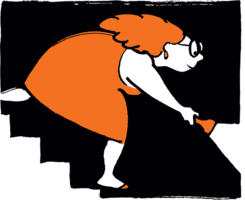
PAW ARCHIVE

Search PAW’s Archive
2025
February 2025
Lives Lived & Lost
January 2025
The 25 Greatest Princeton Athletes
2024
December 2024
Hidden heroines; U.N. speaker controversy; Kathy Crow ’89’s connections
November 2024
Princetonians lead think tanks; the perfect football season of 1964; Nobel in physics.
October 2024
Exit interviews with alumni retiring from Congress; the Supreme Court’s seismic shift; higher education on the ballot
September 2024
Sheikh Nawaf al-Sabah ’94 in Kuwait; Tiger Travels; Why the graduate student union vote failed.
July 2024
A Reunions to remember; 3x3 star Kareem Maddox ’11 heads to Paris; P.G. Sittenfeld ’07 has reached a verdict.
June 2024
Kahina Haynes ’11 and the problem with ballet; Andrew Golden steps down from Princo; Aaron Burr 1772’s forgotten family.
May 2024
The senior thesis at 100; attorney Brittany Sanders Robb ’13
April 2024
The art of Mary Weatherford ’84; The alumni interview endures
March 2024
The Food Issue: Hoagie Haven, Conte’s, coffee culture, a berry boss
February 2024
Lives Lived & Lost; Managing chronic pain through surfing
January 2024
Mellody Hobson ’91 and John W. Rogers Jr. ’80 fight for diversity in finance; Students talk mental health; Cornel West *80 election fears
2023
December 2023
The Legacy of Legacy; War & Words; Ross Tucker ’01 Is Going Places
November 2023
Brooke Shields ’87, Teaching organic chemistry; James Tralie ’19 at NASA
October 2023
Antiquities dealer Edoardo Alamagià ’73, Colorado Gov. Jared Polis ’96, Affirmative reaction
September 2023
Gen. Mark Milley ’80 retires as chairman of the Joint Chiefs of Staff; A music career interrupted; ‘Trump Attorney 1’
July 2023
Rockin’ 2023 Reunions; What the Civil War cost Princeton; Addressing sustainability
June 2023
The women of ’73, Annual giving, A former Marine graduates.
May 2023
President Christopher Eisgruber ’83 on a decade of change; A basketball journey; Rabbi Gil Steinlauf ’91
April 2023
The Climate Issue; From Princeton to Policymakers; Tigers in the NCAA
March 2023
ChatGPT changes higher education; Toni Morrison exhibit; New provost Jennifer Rexford ’91.
February 2023
Lives Lived & Lost in 2022; Scholars from Ukraine and Russia; Why college rankings matter
January 2023
Crashing the conservative party; The future of fish; 100 years of Baker Rink
2022
December 2022
Attorney Alinor Sterling ’89; Organic chemistry and Maitland Jones Jr.; Renaming buildings
November 2022
Walter Kirn ’83 takes a road trip; Princeton drops fossil fuels; Coach Jesse Marsch ’96
October 2022
Dan Porter ’88 transforms sports; Adlai Stevenson 1922’s impact; The truth about dog years.
September 2022
Princeton astronomers look to Webb telescope; The doctor is on; Protecting Prospect Avenue
July 2022
Reunions 2022; Commencement times two; Alumni role: Has it changed?
June 2022
Ethics in the lab; Experiments in economics; Transfer program grows.
May 2022
Former ambassador to Ukraine Marie Yovanovitch ’80; The secret life of Jeffrey Schevitz ’62; Campus construction boom
April 2022
Following the data; A new Princeton Companion; the Ukrainian Philharmonic’s conductor
March 2022
How students with disabilities view Princeton’s campus; COVID lessons, Goin’ back for Alumni Day.
February 2022
Lives Lived and Lost 2021; The art of living; Mental health
January 2022
The philosopher musician; A new take on boarding school; Victory bonfire!
2021
December 2021
Two Texas mayors; Capitalizing racial identities; Endowment grows.
November 2021
A Ritchie Boy; Banner year for Princeton Nobels; Alumni reflect on Afghanistan
October 2021
Reckoning with the ancients; Haunted Princeton; A joyful return for students
September 2021
South African historian Jacob Dlamini, Author Michael Lewis ’82, Students return to campus
July 2021
A Commencement to celebrate; Return of the V-rade, Higher ed after COVID
June 2021
Return of the cicadas, Tiger wineries, A toolmaker’s mind
May 2021
Einstein at Princeton, A conversation with James Baker III ’52, How Lacy Crawford ’96 found her voice
April 2021
Frank von Hippel works to prevent nuclear disaster; Why we need civics
March 2021
Black and White and the Blues; Lincoln scholar Allen Guelzo
February 2021
Lives Lived and Lost, 2020; Students return; COVID-risk tool
January 2021
When song is silenced; facing failure; a refugee’s lessons
Looking for issues before 2006?
You can explore all issues prior to 2006 for free on Google Books:
The Magazine
Newsletters.
Get More From PAW In Your Inbox.
















































